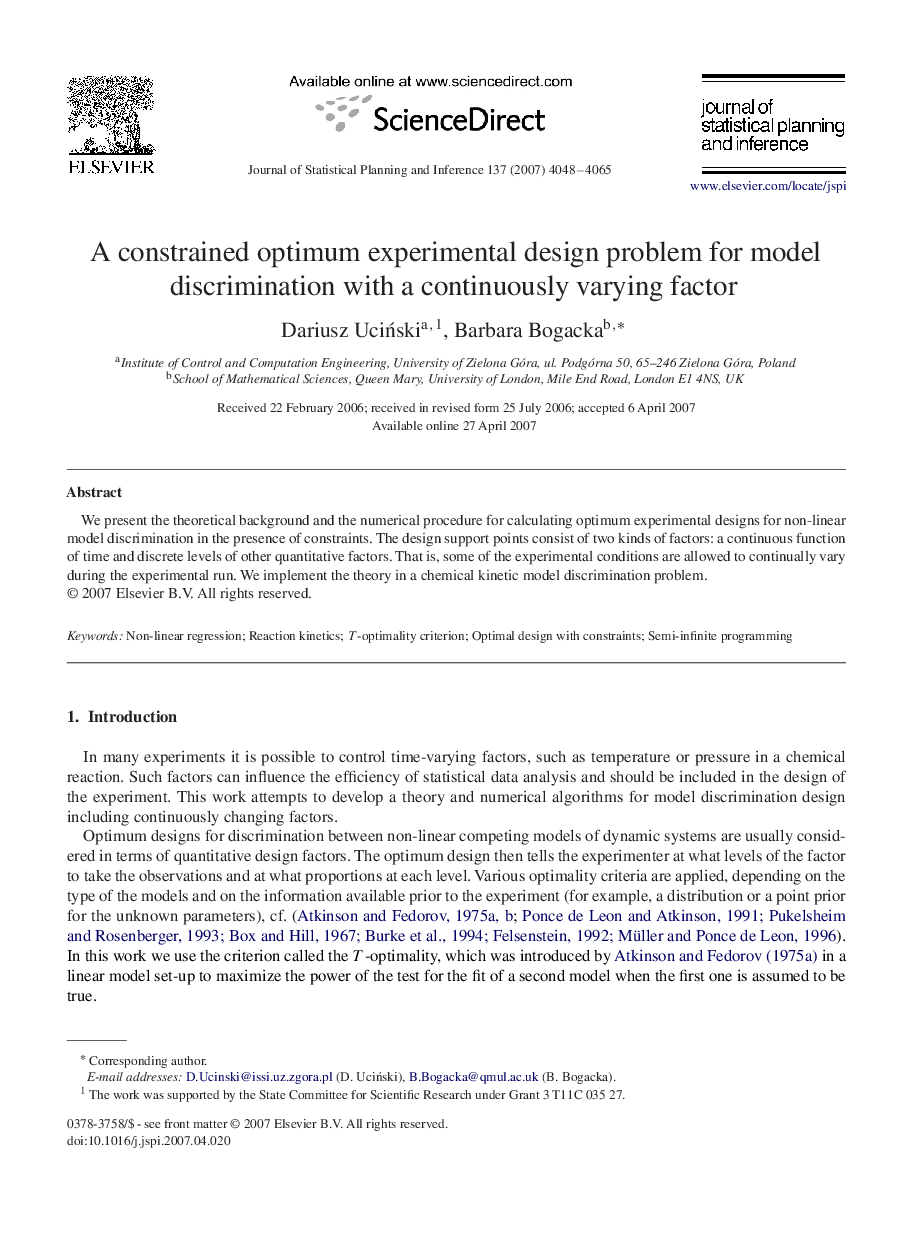| Article ID | Journal | Published Year | Pages | File Type |
|---|---|---|---|---|
| 1148566 | Journal of Statistical Planning and Inference | 2007 | 18 Pages |
Abstract
We present the theoretical background and the numerical procedure for calculating optimum experimental designs for non-linear model discrimination in the presence of constraints. The design support points consist of two kinds of factors: a continuous function of time and discrete levels of other quantitative factors. That is, some of the experimental conditions are allowed to continually vary during the experimental run. We implement the theory in a chemical kinetic model discrimination problem.
Related Topics
Physical Sciences and Engineering
Mathematics
Applied Mathematics
Authors
Dariusz Uciński, Barbara Bogacka,
